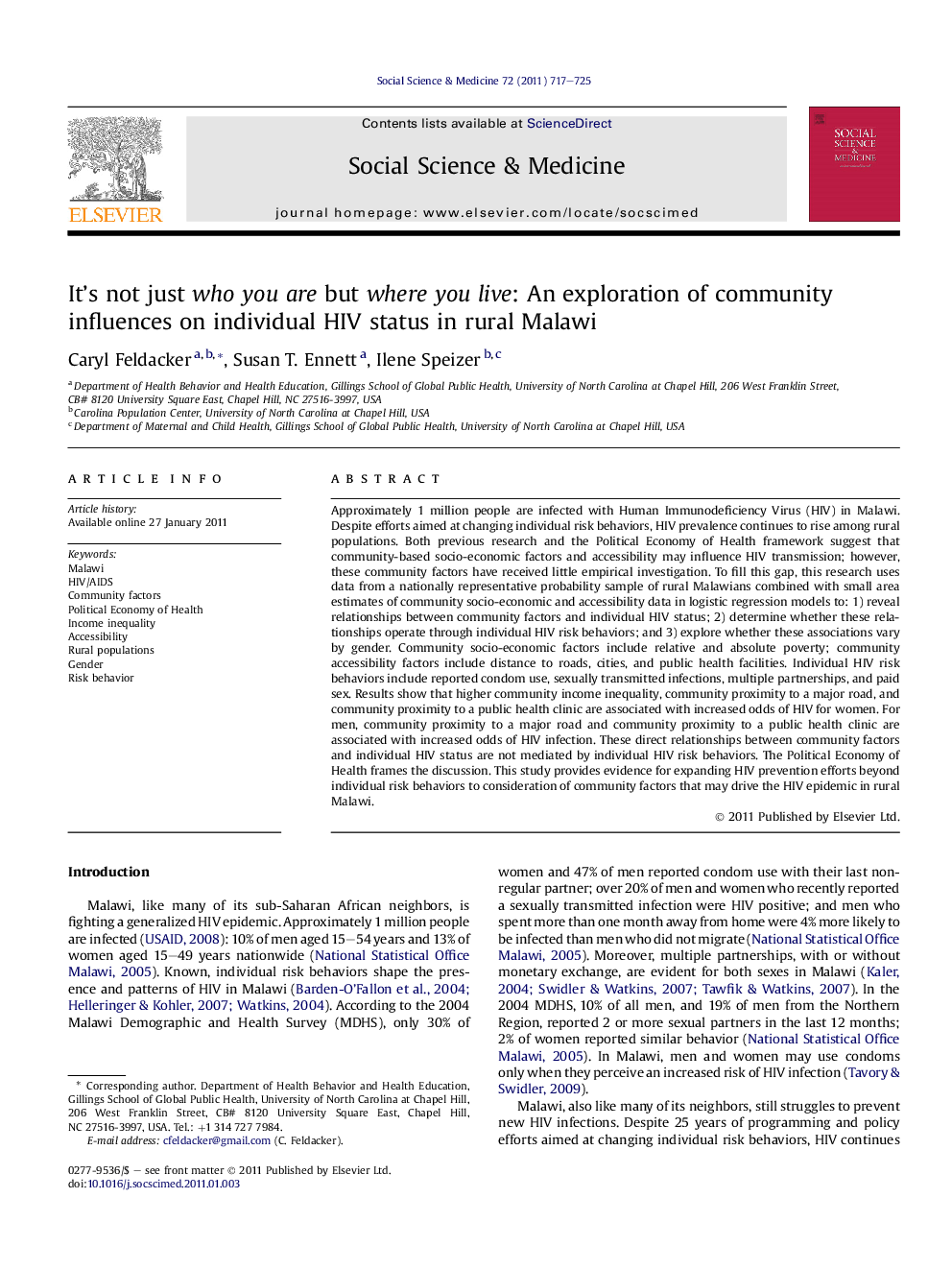| Article ID | Journal | Published Year | Pages | File Type |
|---|---|---|---|---|
| 952987 | Social Science & Medicine | 2011 | 9 Pages |
Approximately 1 million people are infected with Human Immunodeficiency Virus (HIV) in Malawi. Despite efforts aimed at changing individual risk behaviors, HIV prevalence continues to rise among rural populations. Both previous research and the Political Economy of Health framework suggest that community-based socio-economic factors and accessibility may influence HIV transmission; however, these community factors have received little empirical investigation. To fill this gap, this research uses data from a nationally representative probability sample of rural Malawians combined with small area estimates of community socio-economic and accessibility data in logistic regression models to: 1) reveal relationships between community factors and individual HIV status; 2) determine whether these relationships operate through individual HIV risk behaviors; and 3) explore whether these associations vary by gender. Community socio-economic factors include relative and absolute poverty; community accessibility factors include distance to roads, cities, and public health facilities. Individual HIV risk behaviors include reported condom use, sexually transmitted infections, multiple partnerships, and paid sex. Results show that higher community income inequality, community proximity to a major road, and community proximity to a public health clinic are associated with increased odds of HIV for women. For men, community proximity to a major road and community proximity to a public health clinic are associated with increased odds of HIV infection. These direct relationships between community factors and individual HIV status are not mediated by individual HIV risk behaviors. The Political Economy of Health frames the discussion. This study provides evidence for expanding HIV prevention efforts beyond individual risk behaviors to consideration of community factors that may drive the HIV epidemic in rural Malawi.
Research highlights► We explore relationships between community factors, risk behavior, and HIV status in rural Malawi. ► Geographic Information Systems are used to combine community data and individual behavioral data. ► Community factors significantly influence individual HIV status for men and women in rural Malawi. ► The Political Economy of Health framework provides support for interpretation and discussion. ► HIV prevention efforts should expand to consider the contextual factors that may drive the epidemic.
